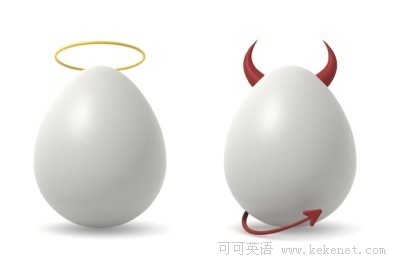
6Halo effect
The Halo effect is the tendency for an individual’s positive or negative trait to “spill over” to other areas of their personality in others’ perceptions of them. This bias happens a lot in employee performance appraisals. For example: my employee, Biff, has been late to work the past three days; I notice this and conclude that Biff is lazy and does not care about his job. There are many possible reasons why Biff was late, perhaps his car broke down, his babysitter did not show up, or there has been bad weather. The problem is, because of one negative aspect that may be out of Biff’s control, I assume that he is a bad worker.
Interesting Fact: The Physical Attractiveness Stereotype is when people assume that attractive individuals possess other socially desirable qualities, such as happiness, success and intelligence. This becomes a self-fulfilling prophecy when attractive people are given privileged treatment such as better job opportunities and higher salaries.
6 晕轮效应
晕轮效应就是说一个人积极或消极的特点会“传播”给其他人,影响其他人的感觉。这一偏见在评估员工表现的时候会发生。我的员工Biff已经有3天迟到了,我注意到这一现象,得出结论Biff懒惰而且不关心自己的工作。有很多Biff的理由,大概他的车子抛锚了,他的看孩子的那个临时工没有是上班,要么是天气原因。但问题是,因为很多不能被Biff控制的消极原因,我认为Biff是个坏员工。
有趣的现象:吸引人的行为固定模式是,当人们假设吸引人的个体有其他人所没有的特征,像开心,成功,和聪明之类的。这就会是一个自我实现的预言,那么这些就会有一些特殊的待遇,像更好的工作机会或更高的收入。














